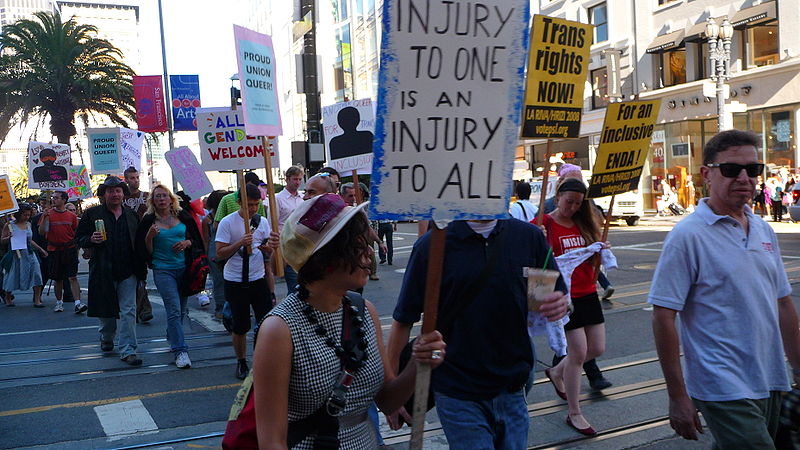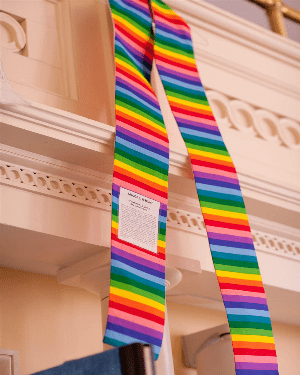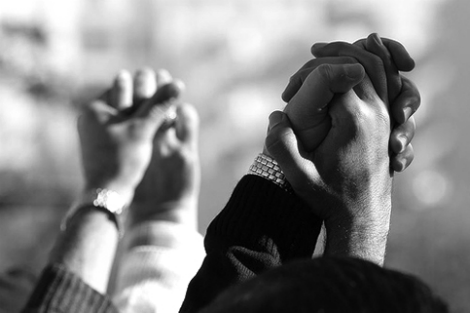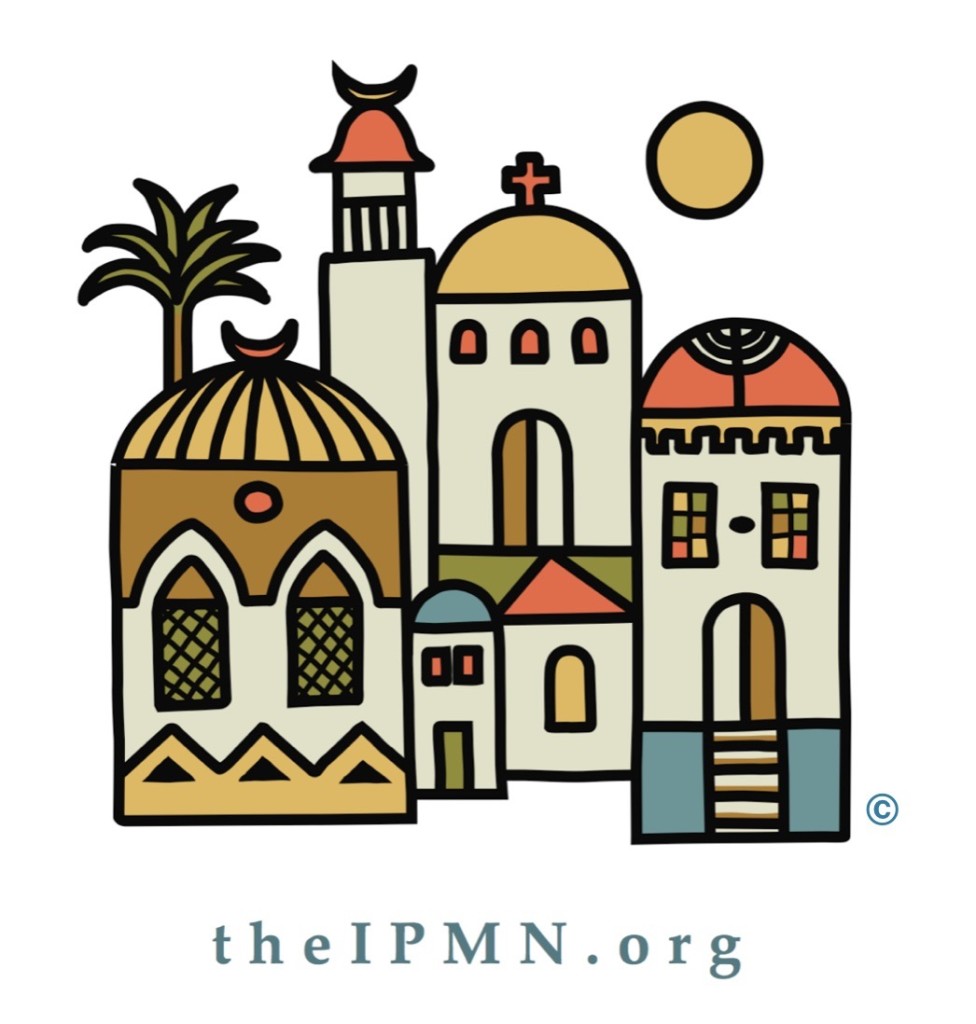A Response to Dr. Barbara Wheeler

Barbara Wheeler, former President of Auburn Theological Seminary has written an article in response to Overture 11-05 coming before the General Assembly this summer in Portland, an overture apologizing to LGBTQ/Q members of the PC(USA) for “harms done”. Wheeler does not contest the damages done to gay, lesbian, and other non-gender-conforming Presbyterians who were denied ordination and marriage in church over the past 40 (and more) years. Her concern is for principled opponents who, by Assembly agreement, are not be required to ordain or perform weddings of LGBTQ persons. You can read her article, entitled “Breach of Faith: Why the Apology Overture is So Wrong” at the Albany Presbytery website and in the Layman. It was posted on both websites with an image that reads: “A measure is coming before General Assembly that breaks the promise of freedom of conscience.”
I thank Dr. Wheeler for her contributions to the conversation about this overture as those elected and called to be delegates and commissioners to the 222nd Assembly seek to discern the will of Christ as it pertains to this and so many other overtures. There is much to commend in her thoughts, such as the exercise of conscience that Presbyterians hold so dear. Ultimately, my discernment leads me to a different conclusion than that of Dr Wheeler on the overture. However, while I agree with most of the impulses of this overture, I also find much that still needs to be addressed in this broad conversation for the church.
___________________________________________
Delaying such an apology would be to demonstrate that the church isn’t able to practice confession, to own up to our own abuses in any age.
___________________________________________
On my first reading, I noted that Wheeler makes no reference to the related apology to the Native Americans and other First Peoples, in Overture 11-08, and it is instructive to compare the two intuitions about what justice requires. Recently, there has been an important recognition of the intersectionality of oppressions experienced by communities who have been subject to historic discrimination. Unlike the overture apologizing to Native Americans, 11-05 does not list and document where the systematic discrimination of LGBTQ people exists within the broader systems of the Church. And while noting the costs of cultural assimiliation practiced by the Boarding School system among First Nations populations, in which our church was complicit, that overture does not mention the damage caused by sexual abuse to children of every gender by predators on staff. Few would doubt the need for apology in those cases, but the First Peoples’ apology overture also opens up the cultural suppression of different worldviews, including those regarding sexuality:
“Even worse, we arrogantly thought that Western European culture and cultural expressions were necessary parts of the Gospel of Christ. We imposed our civilization as a condition for your accepting the Gospel. We tried to make you be like us and, in so doing, we helped to diminish the Sacred Vision that made you who you are. Thus, we demonstrated that we did not fully understand the Gospel we were trying to preach.”
By focusing on the latter part of the 40-plus year struggle, Wheeler frames the conversation about the inclusion and ordination of LGBTQ persons as a recent phenomenon. Over the last 10,000 to 500 years, however we now know that the Lakota people have recognized three genders and that the Navajo people have recognized four genders. Many other First Nations had their own cultural values that welcomed all of their children. Today, most First Nation peoples call such non-gender-conforming people and sexual orientation minorities as Two-Spirit people, and have recognized many of them as spiritual leaders in their communities. (For example, see the PBS filmTwo Spirits for more on this.)

Furthermore, if we as Presbyterians had been reading the Jewish Talmud, we would have recognized that our Jewish brothers and sisters have recognized up to six genders for hundreds of years reading the First Testament. [1] If we cannot make the connections to those in other cultures whom we have been presently oppressing, we have no right to ask others for time to make amends. There are eight forms of marriage in the Hebrew scriptures. To give just one example, why would we go back to forcing a women ‘won’ by a man as spoils of war to become his ‘war bride’? (See Numbers 31:1-18 and Deut. 21:11-14).
I’m glad that Wheeler makes passing mention of the changes in church polity over the ages. I would have rather that she addressed the changes in society since the last General Assembly, including the Supreme Court’s decision (Obergefell v. Hodges) which has shown that there has been a sea change in the legal understanding of the rightful place of LGBTQ people in American civil society. Since the last GA, there is a growing scientific knowledge that the oppression of sexual and gender minorities has led to significant social repercussions. Studies like the psychological research of Dr. Caitlyn Ryan at San Francisco State University have pointed out the mental health disparities for people whose gender identities or sexualities are not accepted by their families of origin or congregations.
___________________________________________
It is exceedingly important that we understand that this overture does not target only one part of the church. It also reminds those Presbyterians whose consciences were pricked but who did not act that their silence since 1978 has been deafening.
___________________________________________
Apologies can never come too early. An apology, even in one voice, should not be contorted into an apology that is only theological in nature. Must we not also recognize that there have been decades of abuse against LGBTQ people by ordinary Presbyterians borne out by those individual notions of heterosexist superiority since the original report on human sexuality was submitted to the 1978 Assembly? That landmark report suggested that there was no reason why LGBTQ people should not continue to be recognized as fully baptized and welcomed members of the community, a policy that was officially retained along with the rejection of LGBTQ ordination, sending a mixed message at best. How many seminarians have been blocked from even continuing their studies at our PC(USA) seminaries? How many faithful Presbyterians were barred from serving as deacons or ruling elders because of the prejudices of perhaps only a minority number of members in their local congregations?
 With a couple of wording changes, local congregations and teaching elders need not fear an infringement of the freedom of conscience from such an apology. However, my hope is that the apology may challenge all of us regarding how we treat former Presbyterians exiled over sexuality who seek to return to the church of their birth or past. This, to me, is the most efficacious aspect of this overture.
With a couple of wording changes, local congregations and teaching elders need not fear an infringement of the freedom of conscience from such an apology. However, my hope is that the apology may challenge all of us regarding how we treat former Presbyterians exiled over sexuality who seek to return to the church of their birth or past. This, to me, is the most efficacious aspect of this overture.
If we apologize to those we have spiritually abused in the past, it could mean that many former Presbyterians – even staunch evangelicals who happen to be LGBTQ – may wish to return to the churches that previously excluded them. Many think that this is an opportunity for every congregation in the church to welcome back those who have been hurt by the church over the years. Who knows, perhaps we could also welcome back those of other traditions who could only find a full welcome within our diversity as Presbyterians.
Perhaps the greatest value of this overture, for those of us who do not identify as LGBTQ/Q, lies in the opportunity it creates to listen. I believe we are called now to hear the stories of those people among us (who are still living) who have endured these abuses over the last 75 years – both those who have remained within the church and those who have felt forced out of the church, through session, seminary, or presbytery actions. Perhaps this overture can be transformed into an invitation for presbyteries, sessions, seminaries, and synods to explore and hear those stories that have been hidden for many years. Those who left for other denominations before our change in policy may also share their stories. My hope is that the opportunity for listening that stems from such an apology will help us in our search of a way forward, will give us wisdom as we seek to discern what it means to be Presbyterians in the twenty-first century.
___________________________________________
Why compound the breach of faith that has already occurred, the breach this overture seeks to remedy?
___________________________________________
It is exceedingly important that we understand that this overture does not target only one part of the church. It also reminds those Presbyterians whose consciences were pricked but who did not act that their silence since 1978 has been deafening. It is a statement on behalf of all of us. It is a painful reminder that in sending people to reparative therapy operations, in standing by while our brothers and sisters in Christ were (and still are) physically and spiritually abused by a so-called therapeutic system that attempts to transform their God-given psyche into what our society deems as ‘acceptable,’ we have failed to honor the very image of God in which we are all created. This overture is a first step in recognizing the human dignity of fellow Presbyterians whose imago dei we have rejected or simply ignored for the last half century.
 I do not find this overture to be a breach of faith. I find it to be an easily-edited beginning of a process of truth and reconciliation that, God willing, may begin to heal the rift between people who have been abused by the church and those of us who, whether through our actions or our silence, have let that abuse happen. An apology is as a first step towards healing the relationships in our beloved church – whether with LGBTQ people or people from First Nations – who have suffered abuse at the hands of the church. Delaying such an apology would be to demonstrate that the church isn’t able to practice confession, to own up to our own abuses in any age. Why compound the breach of faith that has already occurred, the breach this overture seeks to remedy?
I do not find this overture to be a breach of faith. I find it to be an easily-edited beginning of a process of truth and reconciliation that, God willing, may begin to heal the rift between people who have been abused by the church and those of us who, whether through our actions or our silence, have let that abuse happen. An apology is as a first step towards healing the relationships in our beloved church – whether with LGBTQ people or people from First Nations – who have suffered abuse at the hands of the church. Delaying such an apology would be to demonstrate that the church isn’t able to practice confession, to own up to our own abuses in any age. Why compound the breach of faith that has already occurred, the breach this overture seeks to remedy?
It’s time to leave the false comfort that comes with blaming the victim and own up to our own complicity. Like those who have been oppressed before, I say “Never Again.”
______________________________________________________________
[1] ‘Tumtum’ shows up 119 times in the Babylonian Talmud. Tumtum and androgynous are neither male nor female, while ‘saris’ are born male and later develop femail traits and ‘aylonit’ are born female but later develop male traits” Rabbi Elliot Kukla. See also Mishna Bikkurim 4:1, 5 and Tosefta Megillah 2:7.
*****
AUTHOR BIO: Rev. Will McGarvey has been pastor at Community Presbyterian Church of Pittsburg, CA, a PC(USA)-UCC congregation, since July 2004. CPC shares ministry with their sister congregation, First Congregational Church of Antioch (UCC). Both are Open and Affirming Congregations. Will also serves on the national board of More Light Presbyterians.






Unbound Social